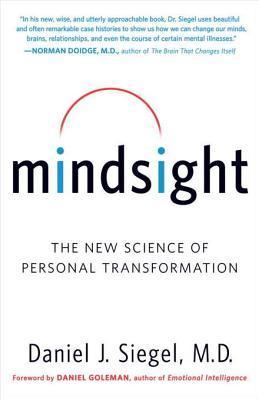
Mindsight: The New Science of Personal Transformation
Publisher
Bantam
Publication Date
1/12/2010
ISBN
9780553907100
Pages
236
Categories
About the Author
Questions & Answers
The essence of "Mindsight" is the ability to focus attention on the internal workings of one's own mind and those of others, allowing for greater self-awareness and empathy. It is a process that enables individuals to monitor and modify the flow of energy and information within the triangle of well-being, which includes relationships, mind, and brain.
Mindsight differs from traditional views of the mind and brain in several key ways:
-
Integration: While traditional views often separate the mind and brain, mindsight emphasizes their interconnectedness, viewing them as parts of a unified system. It recognizes that mental processes are shaped by the brain and that the brain is influenced by mental experiences.
-
Neuroplasticity: Mindsight incorporates the understanding of neuroplasticity, the brain's ability to change and adapt throughout life. This contrasts with older views that considered the brain as static and unchangeable.
-
Emphasis on Relationships: Mindsight places a strong emphasis on the role of relationships in shaping the mind and brain. It recognizes that social interactions and communication play a crucial role in mental development and well-being.
-
Reflective Practice: Unlike traditional views that might focus on external behaviors, mindsight encourages reflective practices that help individuals understand their internal experiences and those of others, fostering deeper self-awareness and empathy.
The Triangle of Well-Being, encompassing Mind, Brain, and Relationships, is interconnected and foundational to overall well-being. The Mind, as a process regulating energy and information flow, interacts with the Brain, the physical mechanism of this flow, and Relationships, the means of sharing this flow. Mindsight, the ability to sense and shape this flow, is crucial in this interaction.
Mindsight fosters awareness and understanding of one's own mind and others', promoting emotional regulation, empathy, and insight. This awareness shapes the Brain's neural connections, enhancing its capacity for resilience and well-being. In relationships, mindsight enables attuned communication and deeper connections, fostering a sense of belonging and security. When integrated, these aspects create a harmonious flow, characterized by flexibility, adaptability, and coherence, leading to a life of well-being. Mindsight, thus, is a key driver of this integration, facilitating the transformation and healing of individuals and communities.
Mindsight is a skill that involves understanding and managing one's own mental processes and those of others. Its key components include:
- Reflection: This involves being open, observant, and objective about one's thoughts, feelings, and experiences.
- Mindfulness: Focusing attention on the present moment without being overwhelmed by emotions.
- Integration: Linking different aspects of oneself and one's experiences to create a coherent sense of self and well-being.
To cultivate mindsight, individuals can:
- Practice mindfulness: Engage in mindfulness meditation or other mindfulness practices to develop focus and self-awareness.
- Reflect on experiences: Regularly reflect on personal experiences to understand their meaning and impact.
- Develop empathy: Try to understand the perspectives and emotions of others.
- Seek feedback: Engage in conversations that encourage self-reflection and feedback from others.
- Stay curious: Approach life with a desire to learn and grow, which can enhance self-awareness and understanding.
State integration is crucial for understanding multiple selves and the core of our identity. It involves acknowledging and accepting the various states or "selves" we experience, each with its own motivations and behaviors. These states are shaped by our past experiences and learning, and they can be reactive or integrated.
When states are integrated, they collaborate rather than conflict, allowing us to maintain a coherent sense of self. This process helps us recognize patterns in our behavior and emotions, fostering self-awareness. The core of our identity lies beneath these layers of states, in a receptive, observing self that can remain stable and open to all experiences. By integrating our states, we can access this core, leading to a more flexible, adaptive, and coherent sense of self. This integration is key to personal growth, well-being, and meaningful connections with others.
Mindsight, as described in Daniel Siegel's book, has profound implications for personal transformation, relationships, and societal well-being. For personal transformation, mindsight fosters self-awareness and emotional regulation, allowing individuals to reshape neural pathways and improve mental health. It helps in navigating the complexities of the mind, leading to a more integrated and balanced life.
In relationships, mindsight enhances empathy and communication, leading to deeper connections and healthier interactions. It allows partners to understand each other's perspectives and manage conflicts more effectively, fostering secure attachments and mutual growth.
For societal well-being, mindsight promotes a culture of compassion and understanding. By encouraging individuals to develop mindsight, society can cultivate more resilient and empathetic communities. This can lead to better conflict resolution, reduced stress, and improved overall mental health, contributing to a more harmonious and functional society.
